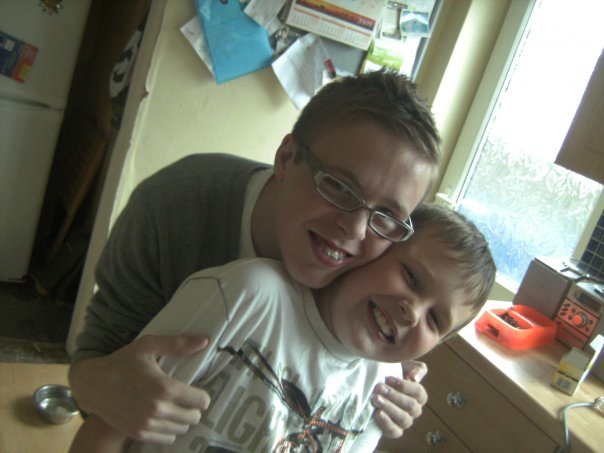
My daughter has had a chronic cough since January, she's now almost 15 months old. We've had countless trips to emerg, walk-in clinics, and we are currently on our second pediatrician, who now thinks she may have asthma. Having severe asthma myself, I realize that she has a good chance of developing asthma, but her symptoms really don't appear to be asthma symptoms, and she has no allergic reaction – other than coughing – to our cats and dog (no sneezing, runny nose or itchy, watery eyes). She coughs more at night. anyway, our first pediatrician conducted a sweat conductivity test to rule out Cystic Fibrosis. Although we were told that the test was negative, we just found out from our new ped that it was actually borderline with a level of 46 (one of the many reasons for the second opinion!). What are other symptoms of CF? She has a very rattly chest, especially after eating, and has the chronic cough.
You may perhaps get her motion examined and dewormise the child under medical supervision.
Hi, Karla, you've gotten some very good answers already. Follow up on that sweat chloride test.
Because there are over 1500 known mutations of the CFTR gene, it is entirely possible that your daughter has pulmonary symptoms only, or that her gastrointestinal symptoms are mild (if she had CF, that is). I work in a CF clinic and I know a patient who has the most common CF mutation (delta F508) and his only symptom is nasal polyps.
But the only way to know is to get a follow up test. if the second test is borderline, then there's genetic testing to do, which will be definitive.
If your daughter does have CF, she will still be able to live a long and healthy life, as long as she (and you) do all the treatments needed.
Generally speaking, a positive sweat chloride test is distinguished by a reading of > 60 mEq/L. CF has both pulmonary and digestive symptoms, however the pulmonary symptoms are often more pronounced. in the pulmonary system, excessive mucus is the hallmark of CF.
I would get another sweat chloride test. a level of 46 mEq/L is above normal (10 – 35 mEq/L), but is technically not a "positive" sweat chloride test (this is where the discrepancy between the 2 pediatricians is most likely arising).
The good news is that we have come a long way in the treatment of CF. CF patients are living much longer than they ever used to, and establishing an early diagnosis and treatment plan predicts better success.
For your own peace of mind, I would consider consulting a specialist (perhaps a pediatric pulmonologist) and having another sweat chloride test performed.
It sounds exactly what my nephew had for the longest time. They also said it was Cystic Fibrosis. It turned out to be RSV. Respiratory Syncytial Virus Infection. I would have them check the baby out because its very contagious amongst kids. my nephew had it for at least 4 months before they figured out what it was. it usually only last about a week or two, but I have seen it last months. Here are the symptoms of Cystic Frosis from Mayo Clinic.
Signs and symptoms in newborns ( CF)
In some newborns, the first sign may be a blockage of their intestines (meconium ileus). This occurs when meconium — tarry, greenish-black stools normally passed by an infant during the first day or two after birth — becomes so thick it can't move through the intestines. other signs in newborns may include:
Failure to grow
Bulky and greasy stools (steatorrhea)
Frequent respiratory infections
Signs and symptoms in children and young adults
Cystic fibrosis symptoms in children and young adults may include:
Salty taste to the skin. People with cystic fibrosis tend to have higher than normal amounts of salt (sodium chloride) in their sweat. This may be one of the first signs parents notice because they can taste the salt when they kiss their child.
Blockage in the bowels.
Foul-smelling, greasy stools.
Delayed growth.
Thick sputum. It's easy for parents to overlook this sign because young children tend to swallow their sputum rather than cough it up.
Coughing or wheezing.
Frequent chest and sinus infections with recurring pneumonia or bronchitis.
Protrusion of part of the rectum through the anus (rectal prolapse). This is often caused by stools that are difficult to pass or by frequent coughing.
Enlargement or rounding (clubbing) of the fingertips and toes. Although clubbing eventually occurs in most people with cystic fibrosis, it also occurs in some people born with heart disease and other types of lung problems.
Cystic fibrosis may also be accompanied by:
Growths (polyps) in the nasal passages
Cirrhosis of the liver due to inflammation or obstruction of the bile ducts
Displacement of one part of the intestine into another part of the intestine (intussusception) in children older than age 4
and just in case, here are the symptoms list of RSV.
Cough.
Stuffy or runny nose.
Mild sore throat.
Earache.
Fever, usually at the beginning of the illness. a high fever does not mean the illness is more severe.
Babies may have additional symptoms, including:
A decreased interest in their surroundings.
Listlessness and sleepiness.
Fretfulness (irritability) and not sleeping well.
Poor feeding.
Apnea, where breathing stops for about 15 to 20 seconds. This usually occurs only in babies who were born prematurely and who also have a history of apnea.
I wish you best best of luck. God bless